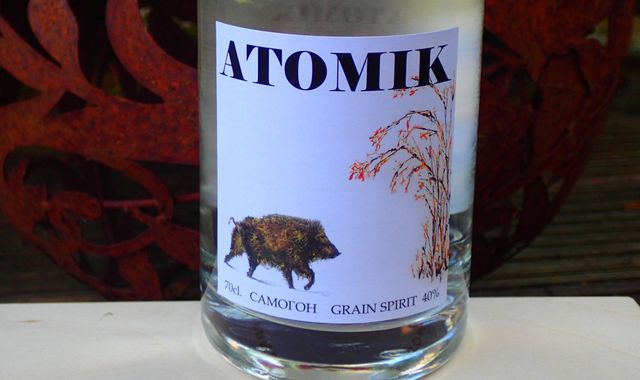Chernobyl vodka called Atomik brewed by UK scientists in nuclear disaster exclusion zone
Written by News on 08/08/2019
A group of scientists have brewed a radioactivity-free vodka using crops in Chernobyl’s abandoned zone.


The artisan spirit, made out of a rye grain and branded Atomik, was described as “possibly the most important bottle of spirits in the world” by Jim Smith, professor of environmental science at the University of Portsmouth.
He and his team, which included scientists and researchers from the UK and Ukraine, came up with the idea in the hope that it would help the affected community in Ukraine and boost the region’s economy.
The group plans to sell the vodka through a social enterprise called the Chernobyl Spirit Company, with at least 75% of the profits going towards wildlife conservation and supporting communities affected by the world’s worst nuclear disaster.
After coming up with the concept in 2015, Professor Smith, who has studied Chernobyl since 1990, and his team grew rye grain in one of the relatively less contaminated parts of the exclusion zone.
They fermented it and distilled it using water from the deep aquifer in Chernobyl town, six miles south of the nuclear power plant.
Professor Smith said the final product is safe to drink after tests on the traditionally-brewed vodka showed that following the distillation process only “natural Carbon-14” radioactivity was found, in line with in any spirit drink.
A world-class laboratory at Southampton University analysed the brew to see if any Chernobyl-associated radionuclides could be found in it, and Professor Smith said none could be traced.
“We hope people will be happy to drink Atomik,” he said.
“We think that in many abandoned areas crops can now be grown safely for any foodstuff, but we want to make a high-value product that we hope people around the world will want to buy.”
Professor Smith led the project with Dr Gennady Laptev, a scientist based at the Ukrainian Hydrometeorological Institute in Kyiv.
But there is a long way to go before they can start making a profit.
Starting a vodka production is complicated in Ukraine due to rules around use of abandoned lands and alcohol production, Professor Smith said, so only one “experimental” bottle has been made so far.
“We hope to begin a small-scale production this year,” he said, adding that a few hundred bottles are in the plans.
Asked why the team chose to make vodka, Professor Smith said they wanted to create a high-value product, which they hoped people would want to try.
“We suspect that drinkers of grain spirit are not particularly risk-averse,” he said.
The accident at the Chernobyl nuclear power plant in April 1986 was the result of a botched safety test, which led to a nuclear meltdown and sent clouds of smouldering radioactive material across parts of Europe.
More than 100,000 people had to be evacuated from the area within 18 miles of the plant, designated the “exclusion zone”, and abandon it permanently in the wake of the explosion.
More than 33 years down the road, it is still deemed unsafe for human life.
Researchers estimate more than 2,300 square miles of land in Belarus and Ukraine remain abandoned and a significant proportion of those lands are former agricultural lands.
There has been renewed international interest in the Chernobyl catastrophe since HBO’s hit drama series about the incident aired this spring.
Tour operators inside the exclusion zone have said their business has been booming ever since the Sky Atlantic show’s release.
Professor Smith said the increase in awareness about the accident is noticeable.
“We want to help explain to people about the recovery from the accident and the situation now, 30 years on,” he said.
(c) Sky News 2019: Chernobyl vodka called Atomik brewed by UK scientists in nuclear disaster exclusion zone







